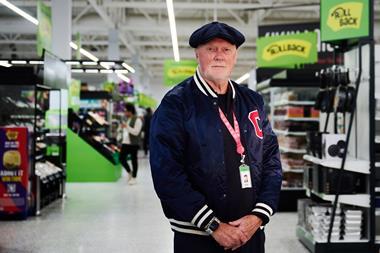Red Tractor or Freedom Foods? British or European? Farmed or free-range? Organic or standard? Consumers have to navigate a plethora of on-pack messages to determine the quality or provenance of what they're buying. And soon they are going to have to deal with more.
Defra's Animal Welfare Delivery Strategy is looking to develop a system to measure how well farm animals are looked after and produce a label directing consumers to products that meet or exceed its standards. The European Commission is also working on a labelling scheme to help consumers make clearer choices on meat products.
But given that there are already welfare schemes out there, notably the RSPCA's Freedom Food Labelling scheme and the government-backed Red Tractor logo, do we need more?
Both new schemes are still in the early stages and are expected to be voluntary rather than mandatory. But there's already plenty of high-level support.
The RSPCA is in favour of another label even though it would rival its own Freedom Food scheme, currently found on more than 200 products. Whole Foods Market also supports the idea, though it is not backing Defra's scheme because it too has its own system.
There is also support from consumers for more welfare initiatives. A European-wide Welfare Quality report, published in March this year by Cardiff University, showed that 73% of UK consumers believed animal welfare was important.
However, while consumer demand for higher welfare products is high, says Dr Julia Wrathall, head of the farm animal department at the RSPCA, many shoppers find it hard to act on their convictions because there's still a relative lack of on-pack guidance.
Welfare schemes also benefit producers, she adds. "There are a lot of producers who feel it is an opportunity to get recognition for something that they already do well and it could result in them being able to charge a premium."
Others argue that another scheme is needed because current schemes, such as Red Tractor and LEAF, don't go far enough to promote animal welfare.
That's why welfare organisation Compassion in World Farming supports Defra's labelling scheme, but is lobbying for it to be mandatory. Unless farmers and producers are made to carry a label, it argues, only those with high welfare standards will use it. It was only in 2004, when a mandatory system was introduced to label eggs as free-range, barn eggs or from caged hens, that there was a major switch from barn to free range eggs, it points out.
"The existing schemes lull the consumer into thinking all is well when it is far from it," claims CWF chief policy advisor Peter Stevenson. "No schemes currently out there challenge farmers to go beyond intensive methods."
Not everyone is in favour of another welfare scheme, however. Robert Newbury, senior food chain and farm policy advisor at the NFU, refutes the claim that current farm assurance schemes fall short and says the government should do more to support existing schemes.
"There are existing labels that tell consumers about welfare standards but these need to be better communicated," he says. "There are logistical problems with covering packs with more labels. There's no point in producing a new label just for the sake of it."
Many echo his concerns that another label could increase consumer confusion. "The welfare label is not the only scheme under consideration," says Peter Melchett, policy director at the Soil Association. "Defra is also promoting an eco label and Tesco and the Carbon Trust are looking at carbon labelling. There are people asking, how many logos do we need?"
Retailers are also cautious, questioning whether the science is yet in place to measure factors such as health and wellbeing.
Even the RSPCA, which is currently trialling an improved system of assessing animal welfare under its Freedom Food scheme, admits that it is early days.
"All assurance schemes set input standards but we are measuring the outcomes and if they aren't up to standard we will make changes," says Wrathall.
Defra, which is developing the scheme in joint venture with the FSA, will have its work cut out to get a scheme of this size up and running, she warns.
"It will be very challenging to develop agreed standards to make a credible and enforced system," she says. "It is achievable but there are so many ways to judge animal welfare standards, it will never be perfect to everyone."nthe current labels
Freedom Food
The RSPCA's welfare scheme was set up in 1994 and has 2,469 members, including farmers, abattoirs and processors. Some 200 products carry the label, including dairy, eggs, salmon, chicken, beef, pork and ready meals.
Soil Association
The Soil Association's logo is found on more than 70% of UK organic produce. It guarantees the product is certified to high organic criteria and that it has been produced and processed to strict animal welfare standards.
Red Tractor
The logo denotes that food has been produced and packed in the UK by a company licensed by Assured Food Standards. There are more than 78,000 Red Tractor farmers in the UK and the brand appears on dairy, sugar, flour and meat.
LEAF
The Linking Environment and Farming scheme was set up in 1991. The marque, which certifies farmers and growers, appears on limited ranges in stores such as Waitrose and Fresh & Wild.
Whole Foods Market
Whole Foods launched its welfare logo in its UK store this month. Meat and poultry carry a welfare rating between one and five. The store currently stocks level four British lamb, chicken, beef and pork and level three duck and veal.














No comments yet